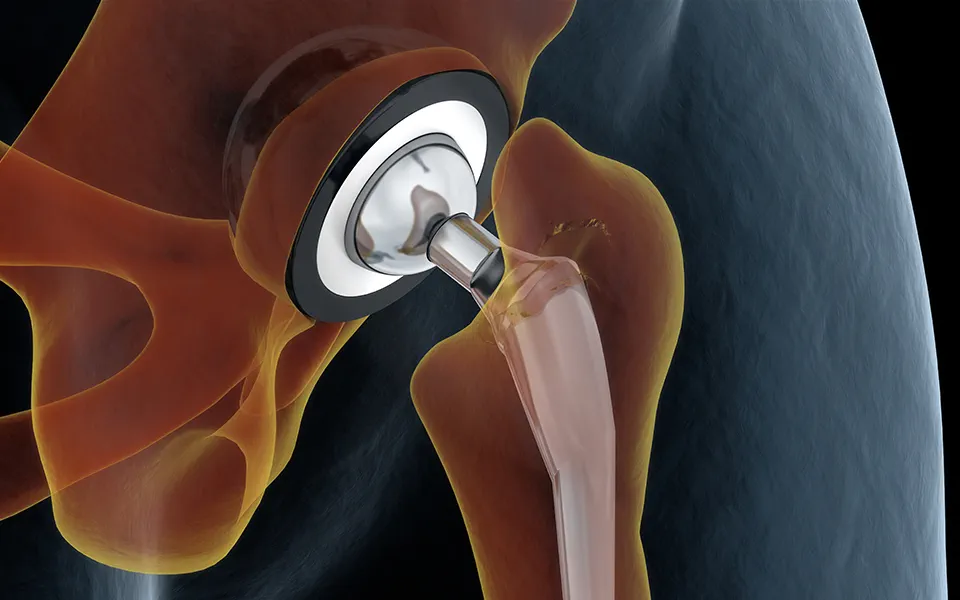Total Hip Surgery
Total hip replacement surgery, also known as total hip arthroplasty, is a surgical procedure to replace a damaged or diseased hip joint with an artificial implant. This procedure is typically recommended for individuals experiencing severe hip pain and limited mobility due to conditions such as osteoarthritis, rheumatoid arthritis, hip fracture, or avascular necrosis. By replacing the damaged joint with an artificial one, total hip replacement surgery aims to relieve pain, improve function, and enhance the overall quality of life for patients.

Total hip replacement surgery offers a viable treatment option for individuals suffering from debilitating hip pain and functional limitations. By restoring mobility and relieving pain, this procedure can significantly improve the quality of life for patients, allowing them to return to an active and pain-free lifestyle.
Symptoms :
Total Hip Surgery is typically recommended when conservative treatments, such as medication, physical therapy, and lifestyle modifications, fail to provide adequate relief. The surgical procedure involves the following steps:
Hip Pain :
Persistent hip pain that worsens with activity or movement is a common symptom indicating the need for total hip replacement surgery. The pain may be localized to the hip joint or radiate to the groin, thigh, or buttocks.
Stiffness and Limited Mobility :
Patients may experience stiffness and reduced range of motion in the hip joint, making it difficult to perform daily activities such as walking, bending, or climbing stairs.
Swelling and Inflammation :
Inflammation and swelling around the hip joint may occur due to the underlying joint damage, leading to discomfort and difficulty in performing weight-bearing activities.
Difficulty Sleeping :
Hip pain and discomfort can disrupt sleep patterns, causing difficulty in finding a comfortable sleeping position and leading to sleep disturbances.
Functional Impairment :
Severe hip arthritis or joint degeneration can significantly impair a person's ability to perform routine tasks, affecting their quality of life and overall functionality.
